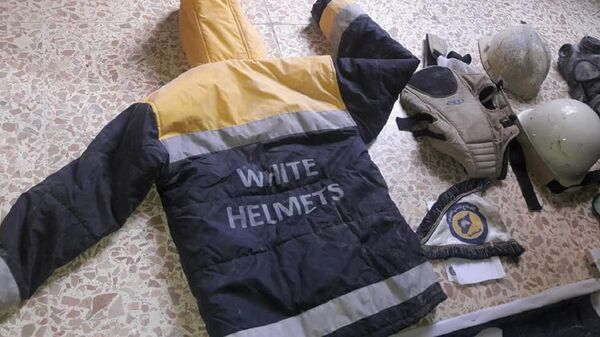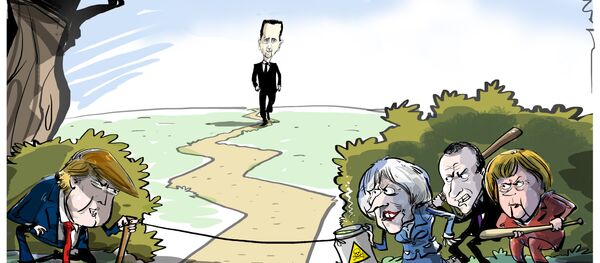Russia's permanent representative to the Organization for the Prohibition of Chemical Weapons (OPCW), Alexander Shulgin, has called on the organization to not allow provocations involving the use of chemical weapons in Idlib.
"[The OPCW] must bring its weight to bear on the matter and not allow this provocation to take place," Shulgin said, speaking to Ruptly. "A number of delegations have agreed with this view. We stressed that everything possible must be done to prevent a provocation," the official added.
On Tuesday, the Russian military reported that it had evidence to suggest that members of the controversial White Helmets rescue group were planning to film video footage "showing 'activists' … 'helping' the residents of Jisr al-Shughur" in northwest Idlib following a fabricated attack by the Syrian Army using so-called barrel bombs filled with poisonous substances. For this purpose, the military warned, militants had brought containers filled with a chlorine-based toxic substance to the area to make the provocation seem authentic.
In recent weeks, Syrian and Russian officials have repeatedly warned about the dangers of new false flag provocations in Idlib, the last major stronghold of anti-government forces including Islamist terrorist groups. Such fake attacks, they've said, would provide the US and its allies with a pretext to launch new attacks against Damascus. In late August, the Russian military reported on the deployment of US naval and air forces around Syria in the Mediterranean Sea and Qatar, which could strike in the aftermath of any new provocations.
The US, the UK and France attacked Syria on April 14, 2018, in response to the Syrian military's alleged use of chemical weapons in East Ghouta. The "evidence" used for that attack, which included video footage of members of the White Helmets "treating victims" in a local hospital, has since been thoroughly discredited. Before that, on April 7, 2017, the US attacked Syria's Shayrat air base following a similar provocation in Homs province.



